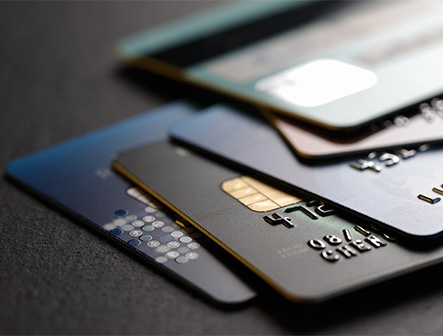Credit cards are essential financial tools for many individuals, providing a convenient way to make purchases, build credit, and manage everyday expenses. When exploring the world of credit cards, you'll often come across two primary categories: secured and unsecured credit cards. These cards serve different purposes and come with distinct features. In this article, we will delve into secured vs unsecured credit card, explaining their differences, benefits, and considerations to help you make an informed choice.
Secured Credit Cards
Secured credit cards are designed for individuals with limited or poor credit histories or those looking to build or rebuild their credit. They are secured because they require a cash deposit as collateral. Here's how secured credit cards work:
1. Collateral Requirement: To obtain a secured credit card, you must deposit a specific amount of money as collateral with the issuing bank. This deposit typically sets your credit limit, and it ensures that the bank has a source of funds if you default on payments.
2. Credit Limit: Your credit limit is usually equal to or slightly higher than your deposit. For example, if you deposit $500, your credit limit may be $500 or slightly more. This limit can be increased over time as you demonstrate responsible credit card use.
3. Credit Building: Secured credit cards are a valuable tool for building or rebuilding your credit. Timely payments and responsible credit utilization can positively impact your credit score, making it easier to qualify for unsecured credit cards in the future.
4. Low Risk for Lenders: Since the bank holds your deposit as collateral, the risk for the lender is minimal. This makes secured credit cards more accessible to individuals with low or no credit history.
5. Annual Fees: Some secured credit cards come with annual fees, but many options are available with no annual fees or reasonable fees.
6. Limited Rewards: Secured credit cards often have limited or no rewards programs compared to unsecured cards. However, the primary focus of these cards is credit-building rather than rewards.
Unsecured Credit Cards
Unsecured credit cards are the most common type of credit card, and they don't require a cash deposit as collateral. Here's what you need to know about unsecured credit cards:
1. No Collateral Required: Unsecured credit cards don't require a cash deposit, making them more accessible to a wider range of consumers. Your creditworthiness, income, and financial history primarily determine your credit limit.
2. Credit Limit: Your credit limit on an unsecured credit card is determined by the issuing bank based on your credit history, income, and other financial factors. It can be substantially higher than the deposit-based limit of a secured card.
3. Credit Building and Usage: Unsecured credit cards can also help build credit, and they often come with more favorable terms than secured cards. However, their availability and the terms offered depend on your credit history.
4. Rewards and Perks: Many unsecured credit cards offer rewards programs, such as cash back, points, or miles. They may also provide additional benefits like travel insurance, extended warranties, and purchase protection.
5. Annual Fees: Some unsecured credit cards charge annual fees, while others are available with no annual fees. The presence and amount of these fees vary depending on the card's features and benefits.
6. Interest Rates: Interest rates on unsecured credit cards can vary widely, and they are typically higher than the rates offered on secured credit cards. Your credit score and credit history play a significant role in determining the interest rate you receive.
Which Card Is Right for You?
The choice between a secured and unsecured credit card depends on your individual financial situation and goals:
-
If you have limited or poor credit and want to build or rebuild it, a secured credit card can be a great starting point. These cards are also suitable for individuals who prefer to avoid the temptation of high credit limits.
-
If you have a decent credit history and can qualify for an unsecured card, it's generally a more flexible and cost-effective option. Unsecured cards often come with higher credit limits, rewards, and various benefits.
-
Some individuals may use both types of cards strategically. They might start with a secured card to build credit and later apply for an unsecured card once their credit score improves.
Final Thoughts
Secured and unsecured credit cards serve distinct purposes in the world of personal finance. Secured cards are designed for individuals with limited or damaged credit, while unsecured cards are available to a broader range of consumers. Regardless of the card type you choose, responsible credit card use is essential for maintaining good financial health and ensuring your credit continues to improve. Carefully review the terms, fees, and benefits of any credit card before applying to make sure it aligns with your financial goals and needs.


No comments yet